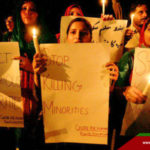El-Hajj Malik El-Shabazz (Malcolm X) was assassinated in NYC on Feb. 21, 1965. Civil rights leader Malcolm X speaks to reporters in Washington, D.C.
Malcolm X (pictured), one of the towering and most polarizing leaders of the Civil Rights Movement, transcended his earlier fiery approach and became a global champion for justice for all mankind. Triumphing over his checkered criminal past, Malcolm X, or properly El-Hajj Malik El-Shabazz, remains one of the most influential African-Americans of all time.
Born Malcolm Little on May 19, 1925 in Omaha, Neb., the future icon lived under the roof of his preacher father who studied Marcus Garvey’s Pan-African movement. Early on, Earl Little preached to his children the importance of Black pride and the like. The elder Little stood out in his town, and White racist groups terrorized the family. Malcolm X lost his father to an accident at the age of six, although the family speculated he was murdered by his opponents.
As a teen, Malcolm X went to live with his sister in Boston, later traveling to Michigan. It was in New York’s Harlem neighborhood, however, that his fortunes would turn in a variety of ways. Involving himself in gambling and drugs, Malcolm X became an infamous figure on the scene known as “Detroit Red” because of his reddish hair. After an arrest in 1946 in Boston, Malcolm X’s transformation would slowly begin.
After gaining a love for reading from fellow inmate John Bembry, Malcolm’s brother Reginald introduced him to the teachings of the Nation Of Islam, a growing group teaching some of the similar things his father had years before. Via correspondence with NOI leader, the Honorable Elijah Muhammad, Malcolm X embraced the teaching of Islam and changed his life. After gaining parole in 1952, he became an NOI minister and eventually found his way to Harlem’s Temple No. 7. Coming full circle after his former life of crime, Malcolm X was an effective and unapologetic orator who spoke plainly about the injustices Blacks faced.
Malcolm X grew to global prominence, but issues between he and the NOI would eventually lead to him leaving the group. In 1964, Malcolm X converted to an orthodox form of Islam, now using the name El-Hajj Malik El-Shabazz. The tone of his message was sharply curtailed, and Shabazz preached unity amongst all races instead of an all-out war against Whites. The new approach clashed greatly with his past as the NOI’s national minister of information, and it was rumored he had enemies in his former group who wanted him dead.
Malcolm X was assassinated on this day, dying in a hail of bullets right before addressing the Organization of Afro-American Unity in Manhattan’s Audubon Ballroom. Several accounts of the stories have been told, with many pointing to the NOI being responsible for the leader’s death.
Although Malcolm X’s loss gripped the nation, his widow Betty Shabazz and their daughters carried his legacy on. Much like Dr. Martin Luther King Jr., Malcolm X had the power to galvanize a nation and inspired hope in many. The hope of that dream still lives on today because of his sacrifice.








